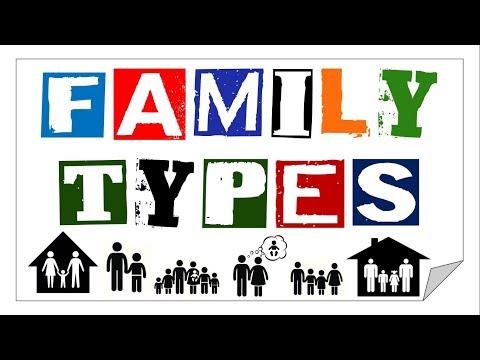A family is a group of people who are related by blood or marriage. Families can be large or small, and they all have their own dynamics. They may share the same goals, but different personalities make it difficult to work together as a team. In this blog post, we will discuss family dynamics and how to deal with conflicts that arise in families for the best way to move forward.
Contents
What Is Family Dynamics?
 Family dynamics is a term used to describe how family members interact with one another. The dynamics of a system are the rules that govern individual behaviors within the system. These can vary greatly from family to family.
Family dynamics is a term used to describe how family members interact with one another. The dynamics of a system are the rules that govern individual behaviors within the system. These can vary greatly from family to family.
The goal in understanding your own dynamic is not only so you understand what’s happening between yourself and other people but also so you know why it happens this way—you’ll be better equipped to change things if they need changing!
Family systems have certain parts, roles, or functions that can create patterns of behavior for all involved. This term is called a subsystem. If you want to change the dynamics of your family, it’s important to understand how these subsystems work and what function each one plays in the system as a whole.
Types of Family Dynamics

There are many types of family dynamics, including some that are considered healthy and others that can cause problems. Some of these are:
Nuclear Family
This is the classic family unit, with parents and children. This is a system in its own right, with a hierarchal structure.
Sibling Relationships
Families tend to stick together through good times and bad—and siblings provide each other love, guidance, support, comfort… But it’s also not uncommon for sibling relationships to become more complicated over time! Siblings may compete for parental attention or fight constantly about everything from simple issues like whether it’s OK to leave dirty dishes on the coffee table when visitors arrive in more serious concerns like how to deal with a parent’s mental illness.
Divorced Parent Family Dynamics
When parents divorce, this leaves children in the difficult position of having to navigate two different family systems that are likely very distinct from one another—and each other! It can be challenging for adult children who have stepfamilies or blended families because they may feel caught between loyalty and responsibility toward their parents’ respective new spouses as well as toward members of their own original biological family. This is especially true if there are conflicts or tension among any of these individuals due to differences in parenting styles or values.
Co-Parenting Relationships
Go through your child’s life together by meeting regularly, sharing information about your child’s development, and coordinating schedules for pickups and drop-offs.
Gay or Lesbian Parents
There is no one right way to be a family, and families headed by gay or lesbian parents are becoming increasingly common. These families face unique challenges, such as having to navigate discrimination and heteronormativity in a society that still largely operates on the assumption that only heterosexual couples can form stable, functional families.
Aging Parents
As your parents age, they often need more help with things like grocery shopping, taking medication properly, or managing finances. This can create tension within families as adult children struggle to balance their own responsibilities with the extra care their parents now require. It’s important to have open communication about these changes and come up with a plan that works for everyone involved.
These are just a few of the many different types of family dynamics that exist, and there may be more to consider depending on your personal circumstances.
Extended Family System
This is a more complex system that includes siblings who are not part of the immediate nuclear family as well as grandparents, cousins, etc. These groups can come together in different ways to create unique dynamics.
Dual-Career Families/Blended Families
These families consist of two or more married couples living together under one roof. This type of dynamic often brings about challenges because it’s especially important for these individuals to understand how their behaviors affect other people within this group! The subsystems may include child care providers (more than just parents), social companionship partners, financial supporters—there are many parts to each role depending on what other roles exist within the subsystem.
Factors That Affects Family Dynamics

There are many factors that can affect family dynamics. These are:
Culture
This factor is usually closely related to family values. It’s important for families—no matter what dynamics they have or don’t have—to acknowledge and respect the cultural differences that may exist within their own dynamic systems!
Age
Children, parents, siblings… Each group has its unique needs and interests which can affect how each individual interacts with one another. This is especially true in blended families where there are children from multiple marriages who come together under one roof!
Geography/Distance
It’s not always possible for everyone involved in a system to be physically located near one another. In these cases, it’s even more critical for members of this subsystem to communicate about issues as frequently as possible since time apart can lead to misunderstandings and miscommunications that usually exacerbate family tension.
Gender Roles
Traditionally, it has been assumed that men are the breadwinners and women are responsible for taking care of the household and children. However, this is no longer always the case! Families today come in all shapes and sizes, and gender roles within them can be quite varied.
Personality Types
Different personality types can often lead to clashes within families. For example, one person may be very tidy and organized while another is more laid-back and doesn’t mind a little bit of messiness. These different preferences can often cause tension if not handled correctly!
Family Strength
The other factor is the number of people in the family. Whether you’re a parent, child, or neither; it’s important to remember that families are made up of individuals with their own needs and desires. It may not always be easy for everyone involved in the family dynamic system to get what they need from one another but working together can help ensure that this is possible!
Different Roles In Family Dynamics

There are many different roles in family dynamics. Some of these are:
Parents
These are the individuals who are responsible for providing their children with both physical and emotional care. They make sure that their children have what they need to grow and develop into healthy adults.
Children
These are the members of the family who are not yet parents. They depend on their parents for guidance, support, and love as they navigate through life.
Siblings
Brothers and sisters share a unique bond that often can’t be found elsewhere in life. They can be each other’s best friends or worst enemies, depending on the dynamic within their family system!
Aunts/Uncles
These relatives often fill a special role in a child’s life, especially if they don’t have any siblings. They can provide support and love, which is especially important during times of family crisis.
Grandparents
These individuals often have a very close relationship with their grandchildren. They may be responsible for taking care of them on a regular basis or they may just enjoy spending time with them whenever possible!
Married Couples Living Together under One Roof
More married couples are choosing to live together under one roof. This type of dynamic often brings about challenges because it’s especially important for these individuals to understand how their behaviors affect other people within this group! The subsystems may include child care providers (more than just parents), social companionship partners, financial supporters—there are many parts to each role depending on what other roles exist in the system.
Extended Families
It’s not just nuclear families who have dynamics. Extended families can also be quite complex, with members from all different parts of the family tree interacting with one another. This can often lead to a lot of tension and drama, but it can also be a lot of fun!
In-Laws
These are the relatives that married couples often have to deal with. They can be a source of support or they can cause a lot of conflict within the family dynamic system. It really depends on the relationship that these individuals have with one another!
Friends/Neighbors
People who are not related to you by blood or marriage can still play an important role in your lives. Friends and neighbors can often provide you with a sense of community and support that you may not get from your family members.
Benefits of Understanding Family Dynamics

There can be many benefits of understanding family dynamics as well:
Helps To Understand Roles
This can help you to understand what your role is within the family dynamic system. This can also help you to better communicate with others about how certain behaviors affect other people in the group!
Improves Family Relationships
When everyone understands their roles and dynamics, it’s much easier for them to find ways of working together. This is so that they can get what they need from one another. It takes a lot of effort but it’s totally worth it!
Increases Self-Awareness & Confidence
This knowledge will increase self-awareness as well as confidence. This is because once individuals become more aware of themselves and their roles within a given system, then they tend to feel empowered by this information—and why not? Understanding yourself should always be an empowering experience!
Helps To Resolve Conflicts
Conflicts are bound to happen within any family dynamic system, but when everyone understands the dynamics at play, it becomes much easier to resolve these conflicts in a healthy way.
Provides Sense Of Security
Understanding family dynamics can provide a sense of security because it gives individuals a better understanding of where they come from and how they fit into this big, amazing world.
Makes It Easier To Identify Dysfunctional Behavior
If you understand what a healthy family dynamic looks like, then it will be much easier for you to identify when things are going off the rails. This is especially helpful if there’s dysfunction within your own family system.
Conclusion
In conclusion, family dynamics are an important part of your life. Furthermore, this type of understanding can help to improve family relationships, increase self-awareness and confidence, resolve conflicts in a healthy way, and provide a sense of security. It’s definitely worth taking the time to learn more about them. This type of understanding can help to improve family relationships, increase self-awareness and confidence, resolve conflicts in a healthy way, and provide a sense of security. It’s definitely worth taking the time to learn more about them.
This type of understanding can help to improve family relationships, increase self-awareness and confidence, resolve conflicts in a healthy way, and provide a sense of security. It’s definitely worth taking the time to learn more about them.
If you are looking for affordable Online Counseling MantraCare can help: Book a trial therapy session


